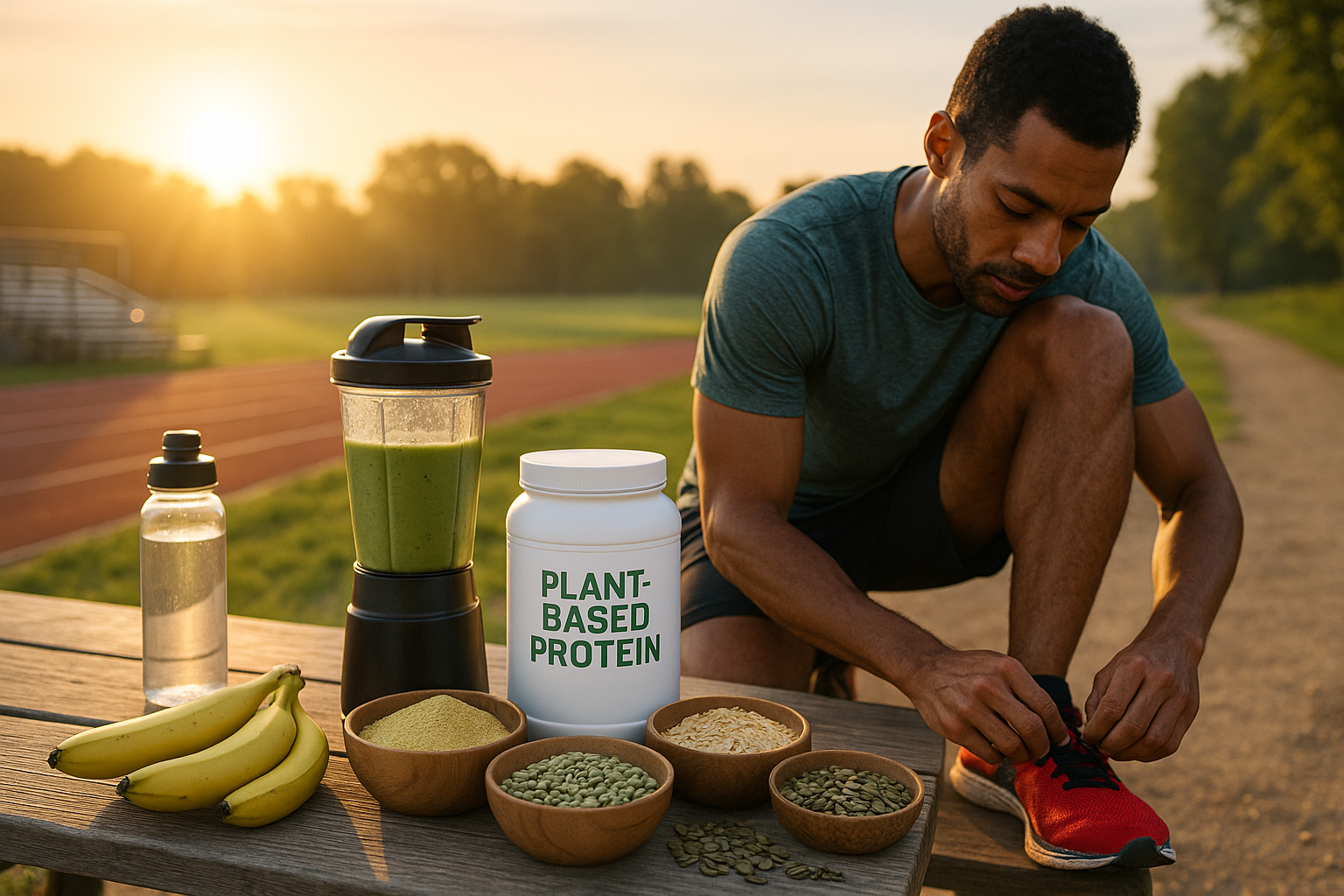Long-distance running requires consistent energy, strength, and resilience. While endurance athletes often focus on logging miles and perfecting training schedules, nutrition and recovery are equally important. Building strong habits around food, movement, and rest can help runners maintain steady energy levels and avoid burnout. Natural approaches to fueling the body are becoming more popular, offering sustainable ways to perform at a high level without relying on overly processed options.

Table of Contents
Why Plant Protein Matters for Endurance Athletes
Endurance running places significant demands on the body. Muscles need to repair after long sessions, and energy reserves must be replenished quickly. Many athletes are now turning to plant-based protein sources to support these needs. Choosing using a plant-based protein powder offers a practical way to boost nutrition while avoiding some of the digestive issues linked to animal proteins. These powders are often blended from pea, rice, hemp, or pumpkin seed, creating complete amino acid profiles that support recovery and sustained performance.
Vegan protein blends provide an alternative that many runners find easier to tolerate during heavy training periods. With improved flavours, smoother textures, and added nutrients, plant-based protein powder has become a key part of many endurance routines. Runners benefit from the steady energy and easier digestion that these formulations provide, making them useful tools for everyday training and post-run recovery.
Top Plant Protein Sources for Sustained Energy
Plant proteins come from a variety of sources, each offering unique benefits. Pea protein delivers essential amino acids that aid muscle repair. Rice protein is light on the digestive system, helping runners avoid discomfort before or after long sessions. Hemp protein contributes healthy fats and protein, while pumpkin seed protein offers valuable minerals such as iron, which supports oxygen delivery during runs. Combining these sources in vegan protein powder creates a balanced profile that mirrors the benefits of complete proteins.
Digestive Benefits for Long Runs
Digestive comfort plays an important role in performance. Runners who experience stomach issues during training or races know how disruptive they can be. Plant-based protein powder often feels lighter on the stomach compared to some animal-derived options, making it a reliable choice for athletes who want to fuel without discomfort.
Some products also include added enzymes or probiotics to aid absorption and improve gut health. Supporting the digestive system in this way helps athletes process nutrients more efficiently, leading to steadier energy levels and improved recovery after demanding sessions. Choosing vegan protein formulations prioritising digestibility can make a big difference during long-distance training.
Timing Protein Intake for Performance
Knowing when to consume protein is as important as choosing the right type. Eating a moderate serving of plant protein a few hours before a run can provide a steady release of amino acids, helping muscles stay supported during prolonged activity. After training, replenishing with vegan protein powder helps repair tissues and restore energy reserves.
Spreading protein intake across meals and snacks throughout the day ensures a consistent supply of nutrients. This approach can prevent fatigue and aid in recovery, especially during peak training periods. Some runners also find that an evening protein serving supports overnight repair, making them feel fresher and stronger for the next session.
Applying Protein Strategies to Different Distances
The needs of runners vary depending on the distance being trained for. For shorter runs, a small serving of easily digestible protein before and after can be sufficient. For half marathons and longer distances, careful timing and slightly larger servings provide the steady support required for endurance. Ultra runners may benefit from small amounts of protein consumed during the event itself, helping reduce muscle breakdown over long hours of exertion.
Training days offer opportunities to test different protein strategies, while race days should rely on well-practised options that the body tolerates comfortably. Plant-based protein powder can be adapted for smoothies, snacks, or even homemade energy bars, giving runners flexibility in how they fuel for different distances.
Creative Ways to Include Plant Protein
Incorporating vegan protein into everyday meals is simple and versatile. For balanced energy, pre-run smoothies can combine fruit, oats, and plant-based protein powder. Overnight oats with added protein powder create a ready-made breakfast. Protein can also be stirred into pancake batter, mixed into energy balls with nuts and seeds, or blended into post-run shakes for fast recovery.
Experimenting with recipes ensures variety and prevents monotony. Runners who find ways to integrate vegan protein into meals consistently are more likely to maintain energy and meet their recovery needs without feeling restricted.
Choosing Quality Protein Products
Not all protein powders are created equally. When selecting plant-based protein powder, runners should look for clear labelling of protein content per serving, complete amino acid breakdown, and minimal added sugars or artificial ingredients. Certification from trusted bodies offers reassurance of quality and safety.
Brands that share transparent sourcing information and avoid unnecessary fillers are often the best choice. A high-quality vegan protein powder supports performance, recovery, and overall health, making it a worthwhile investment for endurance athletes.
Natural energy boosts allow runners to train harder, recover better, and feel stronger throughout their journey. Now is the perfect time to explore vegan protein solutions aligning with performance goals and long-term health.

